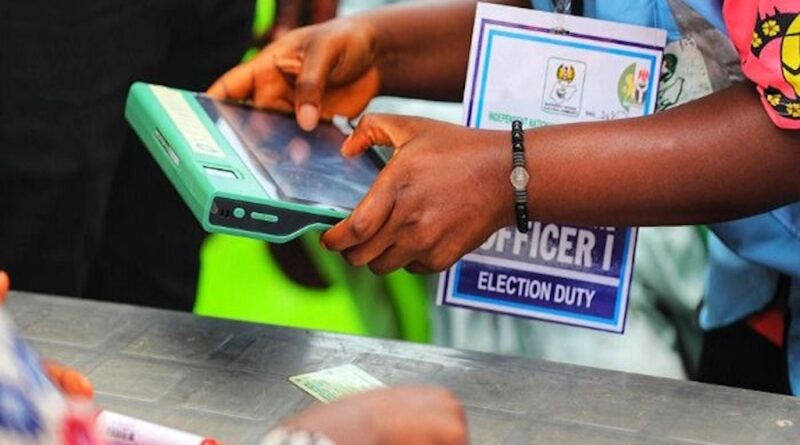BVAS Conflict: Navigating the Implications and Opportunities for Nigeria’s Electoral Process
Today, the Bimodal Voter Accreditation System (BVAS) is in the eye of the storm. Undoubtedly, the BVAS is an essential electronic device that has replaced the manual accreditation of voters by the Independent National Electoral Commission (INEC). The BVAS reads the information on the permanent voter’s cards (PVCs) by verifying voters’ fingerprints, ensuring that those presenting themselves for voting match the information on their PVCs and, therefore, are eligible to vote.
For BVAS to discharge its functions efficiently, it must be reconfigured for every election and be polling unit specific. On February 25, 2023, the BVAS were deployed for the presidential elections. So, for the BVAS to be used for any other polls, like the oncoming March 11, Governorship and Houses of Assembly elections, the BVAS used for the presidential elections must be wiped clean, reconfigured, and ready for Saturday.
Meanwhile, the appellate court has given expressed permission to the presidential candidates of the People’s Democratic Party (PDP), Atiku Abubakar and Peter Obi of the Labour Party (LP), respectively, to be granted access by INEC to inspect the BVAS to authenticate the accreditation carried out during last Saturday’s Presidential elections. Except the appellate court reverses itself, this Saturday’s round of elections will likely be put off perhaps indefinitely until the PDP and Labour parties finish their forensic investigations.
From the look of things, there is no way the parties would start and conclude the inspections of those BVAS and end by Saturday, which is here with us already. So, what do you think next?
Nigerians, the National Assembly, and the INEC did not see these unfolding constitutional issues coming. What if the court sticks with its ruling and Saturday’s elections do not hold? What would be the implications for INEC, which has perhaps printed all the documents dated this Saturday? What would the ruling portend for our democracy? What if, on the other hand, the court reversed itself when the parties were yet to examine the BVAS? How would the parties seeking access to the BVAS see it as “justice.”
All my life, I have been built to see opportunities in every challenging, conflictual, or disappointing situation. One such opportunity presented to us now is the BVAS and sensitive materials used in the last presidential elections, which are matters being pursued before the court by the PDP and the LP.
I know this is a significant crossroads. I appeal to all and sundry that we must cross the roads with methodical patience, so we do not derail the ongoing political transition. Conflict should not be seen in the light of crisis, blood flow, violence, or destruction of properties, which we saw with the Naira redesignation policy conflict. Conflict, in most cases, can help us identify our flaws, correct our deficiencies and build better systems.
While I will not offer any opinion on the cases in court over the BVAS, I will appeal that we should see the opportunities this BVAS conflict presents to improve our electoral process.
First, the 10th National Assembly should, early in its work, interrogate the 2023 Electoral Act thoroughly and block the loopholes to assist the INEC in continuously improving its processes for the good of Nigerians. One such area in focus should be given enough room for petitions and possible forensic interventions after all presidential elections before embarking on lower-level elections.
Secondly, technology experts can devise a means to upload all currently stored information in the BVAS to electronic storage far from the maddening crowd in an undiluted manner, in which INEC shall be the sole custodian and recall when needed.
Thirdly, In subsequent elections, INEC should be encouraged to upload the BVAS information to the specified locations as stipulated by the Electoral Act 2022.
Fourthly, I know of a truth that no Chief Executive would want to sabotage the organization they lead. Every leader strives to leave a positive legacy. Undoubtedly, the INEC Chairman is no different. He also would like to leave a legacy worthy of being recorded on the positive side of history. It behooves him when the dust settles to leave no stone unturned in identifying and handing over any member of INEC found culpable in the electronic transmission saga to security agencies for prosecution. This will help to instill public confidence in the electoral process.
Nigeria has gone through more turbulent and severe times and survived. This phase, too, shall pass, and we shall overcome it. Let us build the resilience and survival strategies that would usher in a new government of the people, by the people, and for the people.
Grace and peace!!!




